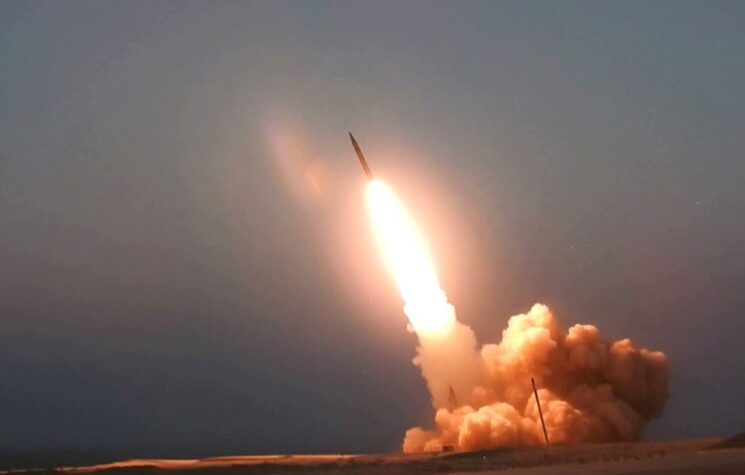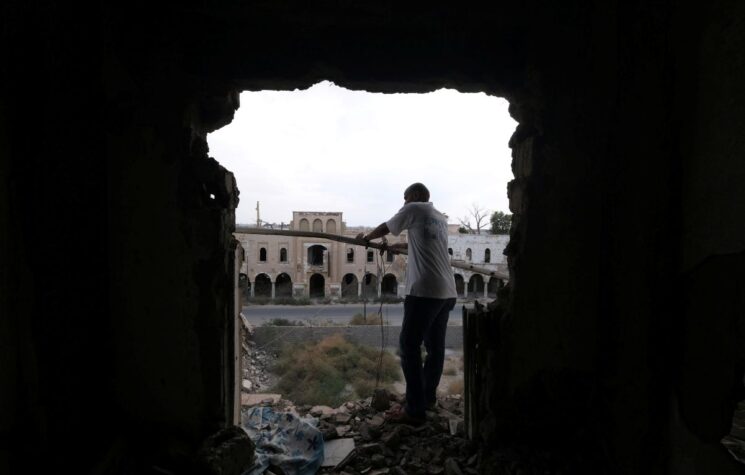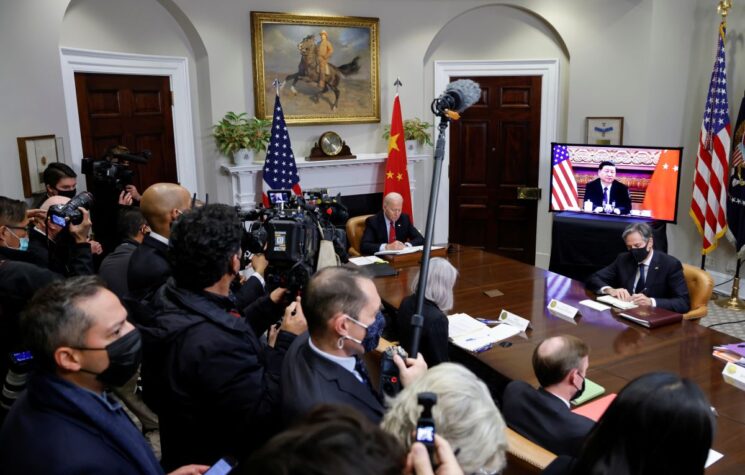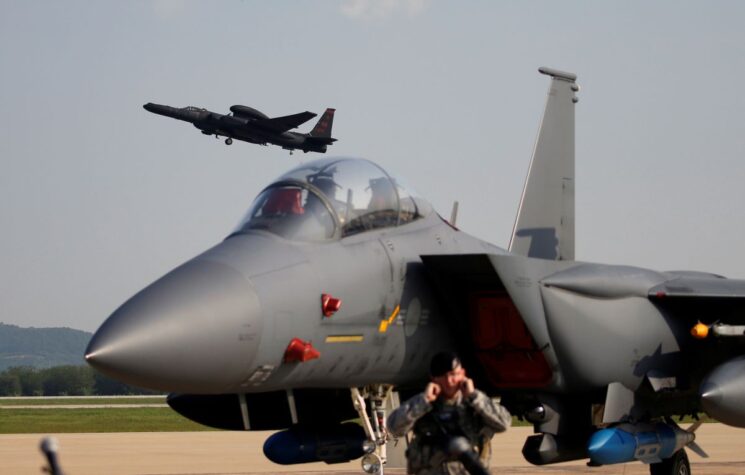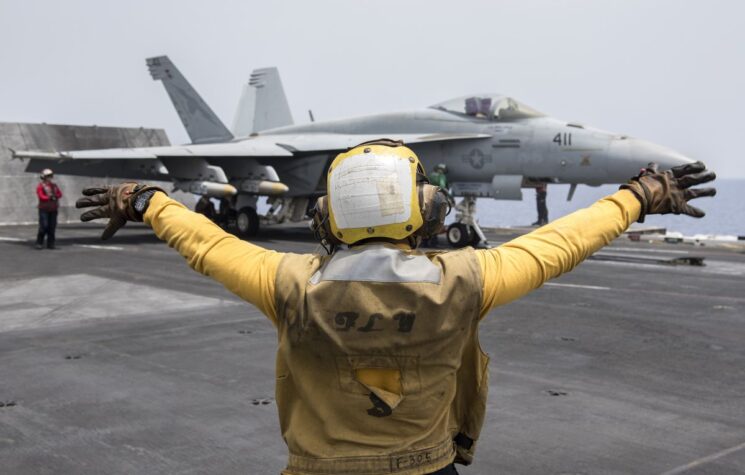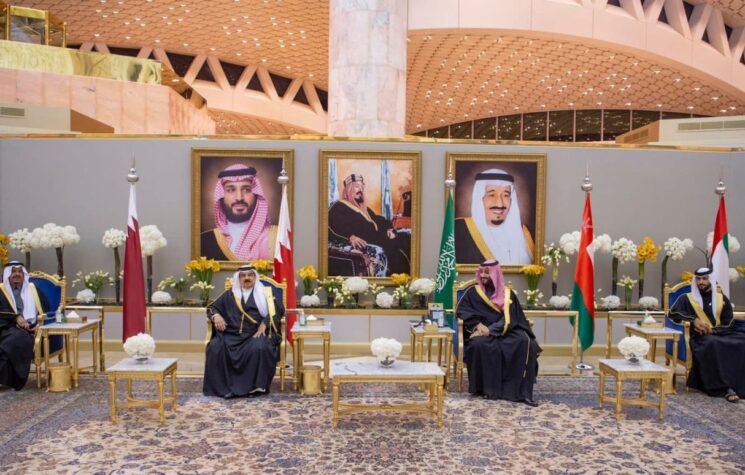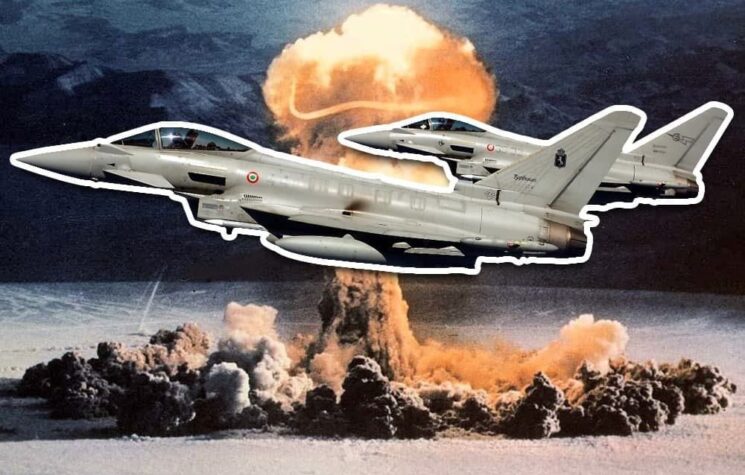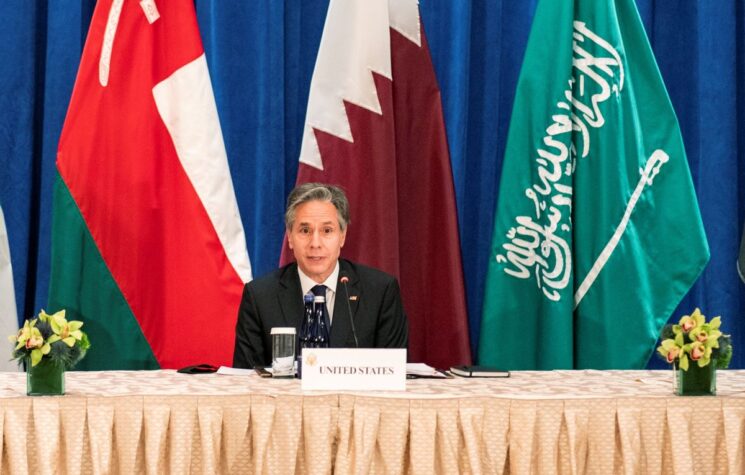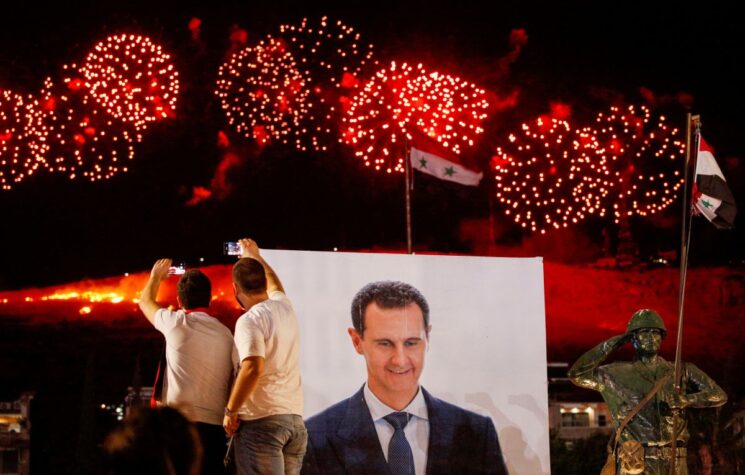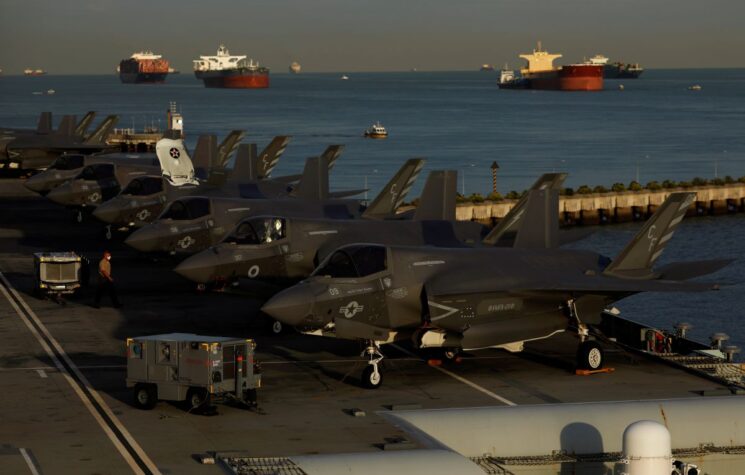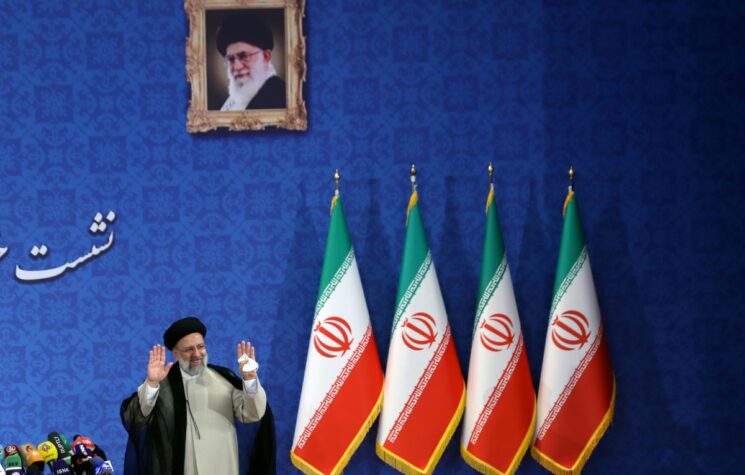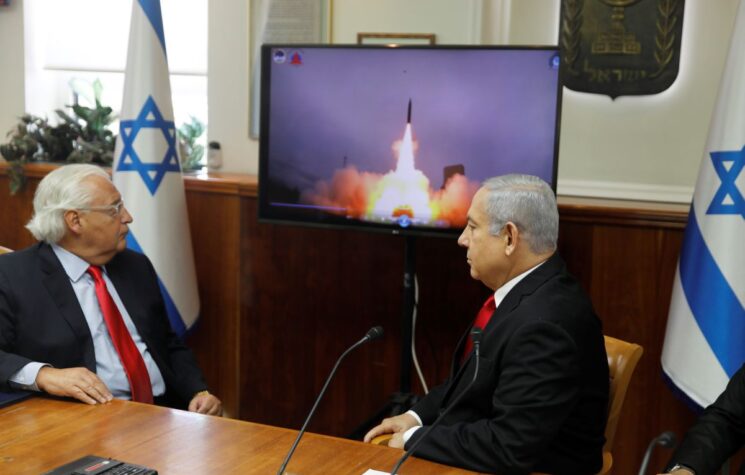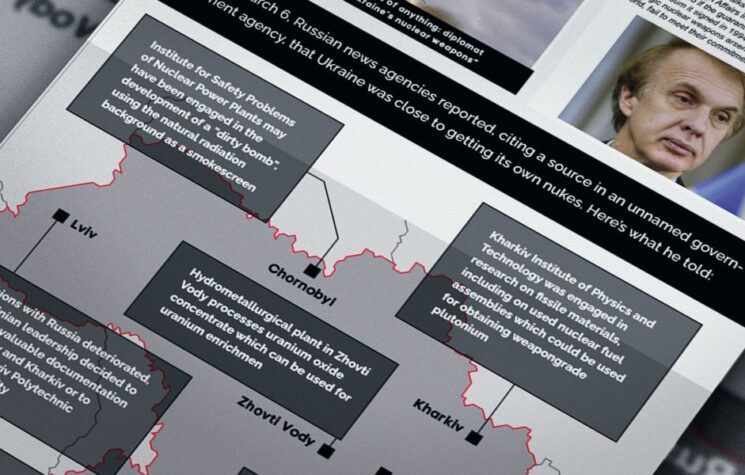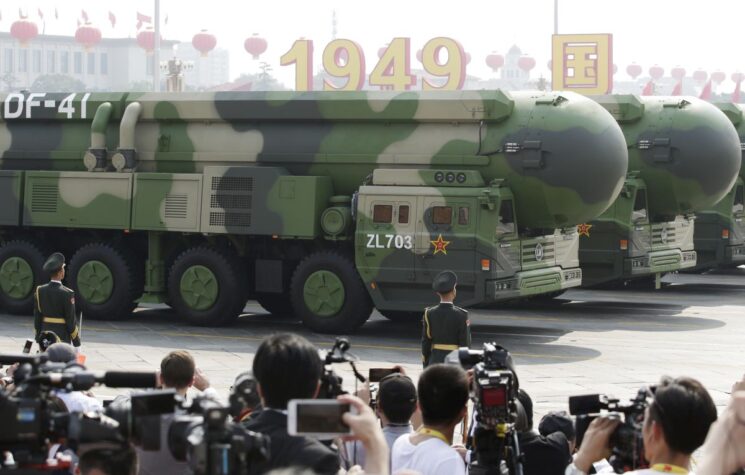The U.S. should do everything it can to ensure that the Middle East is a nuclear weapons-free zone, Brian Cloughley writes.
The Biden administration insists that it develops policy and takes action in accordance with the “rules-based international order” which “can generally be described as a shared commitment by all countries to conduct their activities in accordance with agreed rules that evolve over time, such as international law, regional security arrangements, trade agreements, immigration protocols, and cultural arrangements.”
In August it was reported that “President Joe Biden’s administration is preparing an overhaul of arms export policy to increase the emphasis on human rights” and that “The United States is easily the world’s biggest arms merchant, selling over $100 billion in weapons, services and training a year.” The matter of human rights, world-wide, is sensitive for Washington, because very many countries benefiting from U.S. largesse have human rights records that can be described only as appalling and, as a handful of U.S. legislators have pointed out, this includes Israel, a major U.S. ally.
As noted by three members of Congress, “We continue to provide the Israeli government with over $3 billion in military aid every year — with no conditions or accountability for wanton human rights abuses and continuing illegal seizures of Palestinian land,” which is undeniable but can be ignored by the Biden administration without fear of international reaction that would have any impact on its day-to-day activities or long-term intentions. The fact that President Biden announced that “Israel has no better friend than the United States” is evidence that his attitude has not altered over many years and that Israel can do whatever it likes because “the United States remains unwavering in its support for Israel’s security.”
But does Washington regard “security” as automatically resting on possession of nuclear weapons? It is intriguing that the Biden administration appears to regard Israel’s nuclear arsenal as fitting in with the rules-based international order which Mr Biden and his associates quote when facing down such recalcitrant nations as North Korea and Iran. On the other hand it should be borne in mind that no member of the Biden administration has ever referred to Israel’s nuclear arsenal, but it is stretching credibility to imagine they are unaware that one exists.
The U.S. government has strict legislation concerning assistance to countries acquiring nuclear weapons, and deplores the fact that North Korea possesses them. Further, President Biden greatly disapproves of Iran’s nuclear programme and the BBC noted he “told a joint session of Congress, marking his 100 days in office, that North Korea’s nuclear programme, along with Iran’s, presented ‘serious threats to American security and the security of the world’. He added: ‘We are going to be working closely with our allies to address the threats posed by both of these countries through diplomacy as well as stern deterrence’.” Further, in December 2020 President-elect Biden gave warning that if Iran obtained nuclear weapons then it would be possible that Egypt, Saudi Arabia and Turkey might follow its example and “the last goddamn thing we need in that part of the world is a buildup of nuclear capability.”
He is right. And the U.S. should do everything it can to ensure that the Middle East is a nuclear weapons-free zone, although no matter what is claimed by various parties, Iran is nowhere near producing a nuclear weapon. On the other hand, the Stockholm International Peace Research Institute (SIPRI) records that “North Korea continues to enhance its military nuclear programme as a central element of its national security strategy. While it conducted no nuclear test explosions or long-range ballistic missile tests during 2020, it continued production of fissile material and development of short- and long-range ballistic missiles.” This year, however, as the New York Times reported, on September 15 “North Korea launched two ballistic missiles off its east coast, the country’s first ballistic missile test in six months and a violation of multiple United Nations Security Council resolutions that ban North Korea from conducting such tests.”
Violation of UN Security Council resolutions does indeed merit international condemnation and — if agreed by the Security Council — appropriate action to persuade the offending country to change its ways. UNSC 1887 commits the international community to establishment of “a safer world for all” and creation of “conditions for a world without nuclear weapons in accordance with the goals of the Treaty on the Non-Proliferation of Nuclear Weapons (NPT), in a way that promotes international stability, and based on the principle of undiminished security for all.” The message is clear, in that the way forward to achievement of world security is limitation of nuclear weapons, and the United States has gone far in legislation in order to promote this worthy goal.
Under the terms of the U.S. Foreign Assistance Act and Arms Export Control Act there is prohibition of U.S. economic and military assistance to nuclear proliferators and countries that acquire nuclear weapons. For many years Washington has gone even further, by imposing drastic sanctions on countries which are considered to be indulging in nuclear proliferation.
But this does not include Israel, which has a large and effective nuclear weapons programme.
As recorded by SIPRI, “Israel continues to maintain its long-standing policy of nuclear opacity: it neither officially confirms nor denies that it possesses nuclear weapons. In December 2014 the United Nations General Assembly overwhelmingly approved a resolution on nuclear proliferation risks in the Middle East that urged Israel to renounce the possession of nuclear weapons, accede to the 1968 Treaty on the Non-Proliferation of Nuclear Weapons (Non-Proliferation Treaty, NPT) ‘without further delay’ and place all of its nuclear facilities under International Atomic Energy Agency comprehensive safeguards.”
In 2009, when Joe Biden was his vice-president, President Obama was asked by a journalist if he knew of “any country in the Middle East that has nuclear weapons,” and replied “I don’t want to speculate.” This was entirely misleading, to the point of being suppression of truth, because there was no “speculation” about Israel’s nuclear weapons programme, which was well known, having been revealed to the UK media in 1988 when Israeli scientist Mordechai Vanunu “gave the Sunday Times details of his eight years employment at the top-secret Dimona nuclear research centre in the Negev desert. The paper concluded that Israel ranked as the world’s sixth nuclear power and possessed as many as 200 atomic warheads.”
But in spite of it being obvious that Israel was and continues to be at variance with the “rules-based international order” in respect of its nuclear weapons’ programme (and its human rights practices), the United States keeps on pumping money and weapons into the country, and USA Today reported in June that “the U.S. has agreed to give Israel about $3.8 billion in military assistance annually. The vast majority of that — $3.3 billion — flows through U.S. foreign military financing grants that Israel can use to purchase American-made weapons, services and training.”
On September 23 the House of Representatives approved legislation to give Israel a further billion dollars in military aid, over and above the usual annual $3.8 billion, thus reiterating the message that Israel can do anything it likes and not be penalised by its greatest supporter.
Biden says that “Israel has no better friend than the United States”, and this bond overrides violations of the “rules-based international order”, including nuclear proliferation. His administration’s policy is that nuclear weapons must not be permitted in the Middle East — except if they belong to Israel. It all reeks of nuclear hypocrisy. And who knows what plans Israel has for employment of its nuclear arsenal, although it should be borne in mind that on September 6 the chief of Israel’s Defence Forces, Aviv Kohavi, stated that plans to attack Iran have been “greatly accelerated.”










